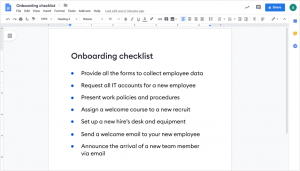— September 7, 2017

AlexanderStein / Pixabay
When it comes to the idea of running your own business, nothing is as daunting as the prospect of what the first 12 months will bring. Often considered the hardest time for any startup, a lot of work has to go into really establishing who you are, what you can offer, how your product or service can make people’s lives better, and why they should trust you.
For over 20 years, the statistics about new businesses have remained pretty much the same: roughly eight out of every 10 business don’t survive past their first year. That’s not a statistic to put you off, but more to emphasize that you’re not expected to get it completely right on your first go – few people do! However, there are some things you can do to help you in your first 12-months to give you a fighting chance at surviving your first year of business. Here are some things you should learn on your journey.
The importance of a business plan
I know, I know. You’d think that everyone starting a business would have thought of this but you would be surprised how many people start their business ventures without a plan in place – especially if they don’t require additional investment or a bank loan to get off the ground.
The very act of writing a business plan allows you to really outline your vision for your business. What issue are you trying to solve, whose lives will be better off, how are people going to find out about you and why should they care?
You don’t need hundreds of pages, but having a detailed plan with realistic time frames, sales and profitability forecasts is vital. Speak with business owners in your niche who don’t operate in the same geographical region as you are planning to and ask them about how they got started and what early issues or successes they encountered. Because you won’t be operating in the same market, these businesses might not see you as a threat and might actually be keen to help you out.
Managing your expenses
One of the biggest hurdles is managing your finances for your business and prioritizing where your money is going to go. New businesses usually fail because there’s no money left.
Some basic advice to consider is to keep your personal and business expenses separate. This can get tricky, especially when you ask whether taking a potential client out for a coffee is a personal expense or a business one. Work out what constitutes as a businesses expense and what is just a personal expense and stick to it.
Keep your receipts and invoices (label them for extra measure if they’re not stored digitally) for your end of year taxes and get a separate bank account for your business and be strict about using that and its associated credit card(s) rather than your own personal ones. Accounting software can make this easier.
Attend industry-specific events
One of the quickest ways to reach your audience or to forge lasting business relationships with other organizations is to attend industry events that are relevant to your niche. These could be talks, one-off informal gatherings, regular monthly meetups, or even gigantic consumer events. What’s important is that you choose somewhere with good footfall and that is attended by the people you want either as customers or as partners.
When you’re starting off, it’s a good idea to focus on events that are close to your base of operations. This cuts down on travel time, travel costs and needing to find accommodation. If you have bulky promotional materials, it can also drastically save you money on transporting these to and from the event.
As well as having a visual presence on the day and being included on the event’s promotional materials, it can also be a good idea to attend the event and speak with your potential customer base. This can lead to a number of clients who might not otherwise have heard of you, especially as a newer business.
Reinvest back into your business
There will come a point during your first year where you will have to decide whether to reinvest profits back into your business or not. There are many ways to go about reinvestment, but a lot of entrepreneurs recommend publishing an eBook or a guide during their first 12-months. Not only does this set you apart from the crowd, but it also demonstrates that you are aiming to be a leader in your field by informing others.
Another route to pursue would be to look at conducting a piece of audience research to find out what the current state of play is within your sector or niche. This not only gives you information about your audience but can also give you information about your competition and how your customer base feels about you in relation to them. Examples of this include salary surveys and white papers. Another boon with this more research-intensive approach is that it also gives you information you can use in a marketing or PR campaign using the unique data you have collected.
Whatever it is you decide to work on, make sure it is relevant to, and meets the needs of, either your customers or the niche that you operate in.
Become a super networker
The ability to network can be very advantageous to your business. It’s your opportunity to meet interesting people, form meaningful professional relationships, and can lead to incredible opportunities to work together and make new clients or customers.
People talk, and word of mouth is still hugely influential when people are making decisions. A massive 82% of Americans seek the thoughts and recommendations from their friends and family before considering a purchase. Every person you meet can then become a pseudo champion or an ambassador for your company with their own contacts.
If you make a good impression at these networking events, connect on LinkedIn and stay in touch (stewarding your networks). If you see something that you know will be of interest to one of your contacts, send them a message and help them out – even if you don’t get anything out of it. They might return the favor one day and land you a client.
Focus on the customer’s needs
When it comes to marketing your business, or networking, or even writing the copy for your website, you need to focus on the customers and clients and how you can help them solve a problem in their lives. Nobody cares if your product or service does x,y, and z – how is it going to help them.
Everything you invest into your business needs to be to either generate new leads or to meet the needs of your customer or client base. That could be making things simpler, or faster, or using higher quality components, anything to make their experience the best it can be. There are always going to be people offering similar products or services, so focusing on what makes you a better choice by focusing on your customers and clients is the best way to set yourself apart.
Lastly…
Enjoy the ride. Starting a new company is scary and exciting at the same time. Hold on to that passion and motivation for why you started on this path and stay focused on your mission. If you want to set goals for yourself, make sure they are SMART, and keep your customers and clients in mind.
Business & Finance Articles on Business 2 Community
(85)








